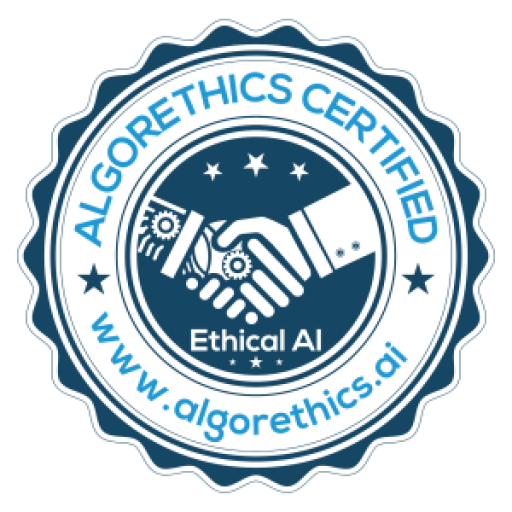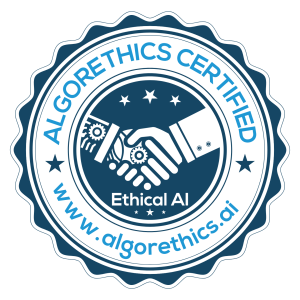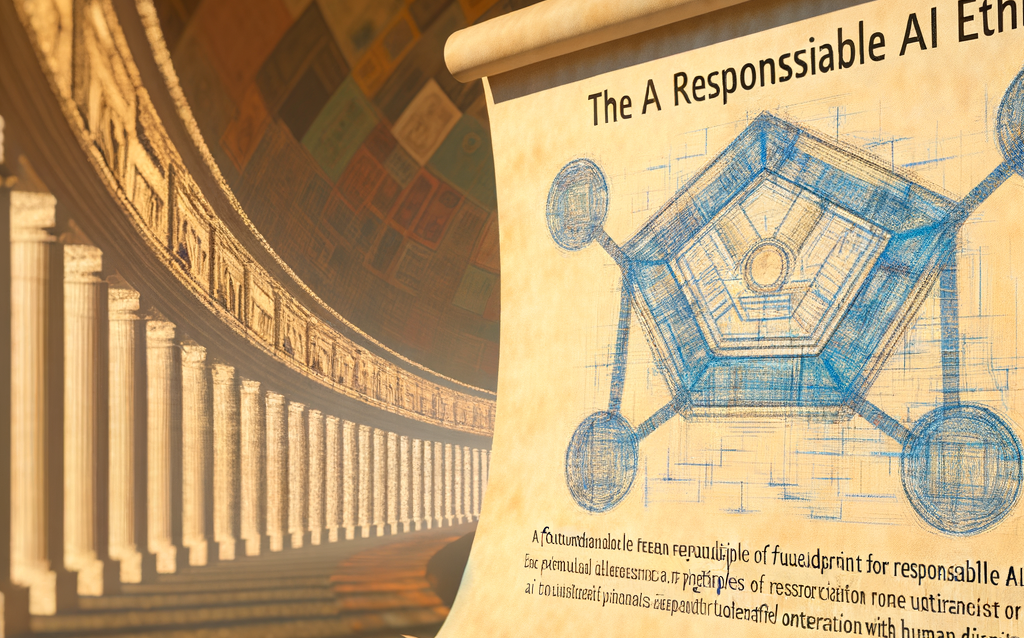In a world where artificial intelligence (AI) stands on the cusp of revolutionizing every aspect of our existence, the call for ethical stewardship is louder than ever. The Rome Call for AI Ethics emerges as a beacon of hope, guiding us towards a future where technology and humanity coexist harmoniously. This groundbreaking initiative is more than just a document; it’s a movement poised to shape the ethical framework of AI development and deployment. Join us as we embark on a journey to unravel the essence of The Rome Call for AI Ethics and its promise for a brighter tomorrow.
Embracing Ethics: The Genesis of The Rome Call for AI
The Rome Call for AI Ethics was born out of a profound recognition that AI, while immensely powerful, needs a moral compass to navigate the complex landscape of modern society. This realization sparked a collaborative effort among diverse stakeholders, including religious leaders, scientists, and policymakers. At its core, the initiative seeks to ensure that AI technologies are designed and implemented in ways that respect human dignity, promote justice, and foster the common good.
The genesis of The Rome Call can be traced back to a historic meeting held in the heart of Rome, where representatives from the Vatican, academia, and the tech industry converged. This unique gathering underscored the importance of a multi-dimensional approach to AI ethics, combining the wisdom of ancient moral traditions with cutting-edge technological insights. It was here that the foundational principles of the Call were articulated, emphasizing transparency, inclusivity, and accountability.
What makes The Rome Call truly remarkable is its emphasis on proactive engagement. Rather than waiting for ethical dilemmas to arise, the initiative advocates for the integration of ethical considerations at every stage of AI development. This forward-thinking approach aims to preempt potential pitfalls and ensure that AI systems align with human values from inception to execution. By fostering a culture of ethical reflection, The Rome Call aspires to create a robust framework that can adapt to the evolving challenges of the digital age.
Integral to the genesis of The Rome Call is the spirit of collaboration and dialogue. Recognizing that no single entity holds all the answers, the initiative champions the idea that ethical AI is a collective responsibility. This inclusive ethos invites voices from all walks of life to contribute to the ongoing conversation, ensuring that the future of AI is shaped by a rich tapestry of perspectives and experiences.
A Brighter Tomorrow: Building Responsible AI Together
The vision of a brighter tomorrow through responsible AI is at the heart of The Rome Call’s mission. By setting forth clear ethical guidelines, the initiative aims to inspire developers, corporations, and governments to prioritize the well-being of individuals and communities. This commitment to responsible AI is not just about mitigating risks but also about unlocking the full potential of technology to benefit humanity.
At the core of building responsible AI is the principle of fairness. The Rome Call underscores the importance of ensuring that AI systems do not perpetuate biases or discrimination. This involves rigorous testing and validation processes to detect and rectify any unjust outcomes. By fostering fairness, The Rome Call seeks to create AI that is equitable and just, capable of serving diverse populations without prejudice.
Another pivotal aspect of The Rome Call’s blueprint for responsible AI is the commitment to sustainability. Recognizing that AI development can have significant environmental impacts, the initiative advocates for eco-friendly practices and technologies. This includes optimizing algorithms for energy efficiency, investing in renewable energy sources, and promoting circular economy principles. By aligning AI with environmental stewardship, The Rome Call envisions a future where technological advancement goes hand in hand with ecological preservation.
Education and awareness are also fundamental to the realization of responsible AI. The Rome Call encourages educational institutions, research organizations, and industry leaders to collaborate in creating comprehensive curricula and training programs on AI ethics. By equipping the next generation of technologists and policymakers with a deep understanding of ethical principles, the initiative aims to nurture a culture of responsibility and integrity in the AI landscape.
Uniting Minds: Global Visionaries and Ethical Innovation
The Rome Call for AI Ethics has garnered support from a diverse array of global visionaries, each bringing unique insights and expertise to the table. This broad coalition of thought leaders, from technologists to humanitarian advocates, exemplifies the power of collective wisdom in addressing the ethical challenges posed by AI. Their shared commitment to ethical innovation underscores the universal importance of this cause.
Among the prominent voices championing The Rome Call are influential figures from the tech industry who recognize the transformative potential of AI. These visionaries understand that ethical considerations are not a hindrance but rather a catalyst for sustainable innovation. By integrating ethics into the DNA of AI development, they are paving the way for technologies that enhance human capabilities while safeguarding fundamental rights.
Religious leaders, too, have played a crucial role in shaping The Rome Call, bringing a rich tradition of moral philosophy to the dialogue. Their participation highlights the intersection of faith and technology, emphasizing that ethical AI is a matter of deep spiritual and philosophical significance. This unique perspective enriches the initiative, reminding us that the quest for ethical AI is as much about our values and beliefs as it is about technical prowess.
The global nature of The Rome Call’s coalition is a testament to the universal relevance of its mission. From Europe to Asia, Africa to the Americas, stakeholders from various cultural and socio-economic backgrounds have united in their resolve to promote ethical AI. This diverse tapestry of contributors ensures that The Rome Call remains attuned to the needs and aspirations of all humanity, fostering a truly inclusive approach to ethical innovation.
The Rome Call for AI Ethics stands as a rallying cry for a more humane and responsible future, where technology serves as a force for good. Its multifaceted approach, rooted in collaboration and proactive engagement, offers a robust blueprint for ethical AI. As we look ahead, the spirit of unity and shared vision that defines The Rome Call inspires hope and optimism. Together, we can shape a world where AI enriches lives, respects dignity, and advances justice – proving that when we embrace ethics, we embrace the very essence of our humanity.







